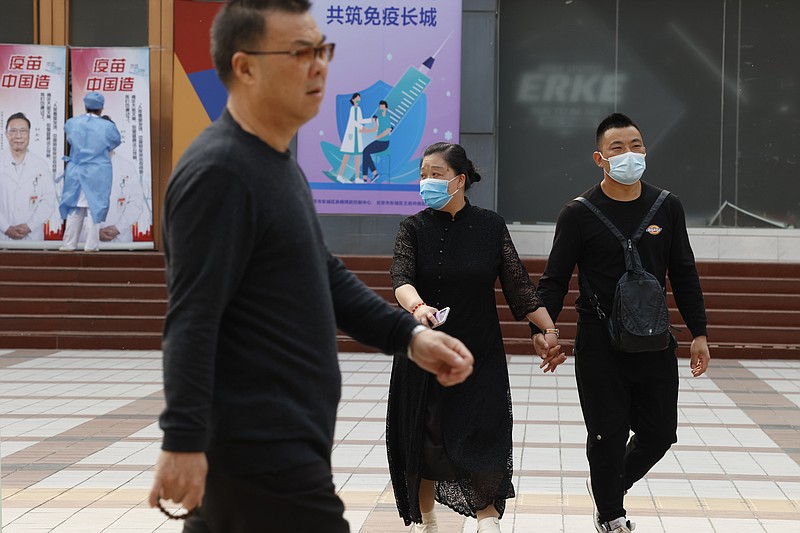BEIJING -- Indonesia said Monday that it is satisfied with the effectiveness of the Sinovac coronavirus vaccine it is using, after the acknowledgement by China's top disease control official that current vaccines offer low protection against the virus.
Siti Nadia Tarmizi, a spokesperson for Indonesia's covid-19 vaccine program, said the World Health Organization had found the Chinese vaccines had met requirements by being more than 50% effective. She noted that clinical trials for the Sinovac vaccine in Indonesia showed it was 65% effective.
"It means we are talking about the ability to form antibodies in our bodies is still very good," she said.
Gao Fu, the head of the Chinese Center for Disease Control and Prevention, said at a conference Saturday that existing covid-19 vaccines had low effectiveness rates and mixing vaccines is among strategies being considered to boost their effectiveness. Those comments appeared to be running counter to China's official narrative that has tried to promote the country's vaccines and at times discredit its Western counterparts.
China has distributed hundreds of millions of doses of domestically made vaccines abroad and is relying on them for its own mass immunization campaign.
Tarmizi said Indonesia would wait to see the results of any clinical trials before considering mixing vaccines.
"We are going to wait, waiting for the clinical trial to ensure the idea or innovation will have better effectiveness, immunogenicity and efficacy level compared to the current condition," she said.
Experts say mixing vaccines, or sequential immunization, might boost effectiveness. Researchers in Britain are studying a possible combination of the Pfizer and the AstraZeneca vaccines.
China currently has five vaccines in use in its mass immunization campaign, three inactivated-virus vaccines from Sinovac and Sinopharm, a one-shot vaccine from CanSino and the last from Gao's team in partnership with Anhui Zhifei Longcom.
The effectiveness of the vaccines range from just over 50% to 79%, based on what the companies have said.
Pfizer and Moderna's vaccines, which are primarily being used in developed countries, have both been shown to be about 95% effective in protecting against covid-19 in studies.
As of April 2, some 34 million people in China have received the full two doses of Chinese vaccines, and about 65 million received one, according to Gao.
Globally, public health experts have said that any vaccine that is 50% effective would be useful, and many governments have been eager to use Chinese vaccines as rich countries around the world have snapped up shots from Pfizer and Moderna.
China's Foreign Minister Wang Yi on Monday said that Beijing will continue to provide covid-19 vaccines urgently needed by developing countries.
"China has provided anti-pandemic material assistance to more than 160 countries and international organizations," Wang said at a conference to promote the image of the central city of Wuhan, where the virus was first detected in late 2019.
Meanwhile, India reported another record daily surge in coronavirus infections Monday to pass Brazil as the country with the second-most reported infections since the pandemic began.
The 168,912 cases added in the last 24 hours pushed India's total since the pandemic began to 13.5 million, while Brazil has 13.4 million, according to data compiled by Johns Hopkins University.
India also reported 904 deaths in the past 24 hours, taking its total to 170,179, which is the fourth-highest toll, behind the United States, Brazil and Mexico.
India is experiencing its worst surge of the pandemic, with a seven-day rolling average of more than 130,000 cases per day. Hospitals across the country are becoming overwhelmed with patients, and experts worry the worst is yet to come.
The latest surge also coincides with the shortage of vaccines in some Indian states, including western Maharashtra state, home to financial capital Mumbai, which is the worst hit state and has recorded nearly half of the country's new infections in the past two weeks.

